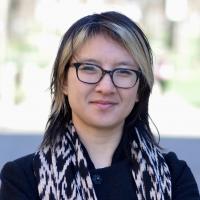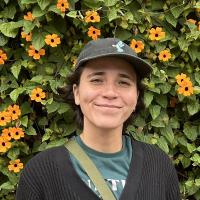iSchool faculty, staff, and students presented their research at the Society for Social Studies of Science (4S) annual conference, which was held from November 8-11 in Honolulu, Hawaii. The society is an international, nonprofit association that fosters interdisciplinary scholarship in social studies of science, technology, and medicine. The theme of 4S 2023 was "Sea, Sky, and Land: Engaging in Solidarity in Endangered Ecologies."
Teaching Assistant Professor Brandon Batzloff presented the paper "Deconstructing the Community Board to Improve Community Engaged Research Practice," in which they discussed decoupling community boards from university programs and making them independent bodies using nonprofit structures. This positions the community board in a mediating role between individual communities and an academic research institution, Batzloff said.
BSIS student Madisen LeShoure presented her project, "Education (in)Equity Dependence on Infrastructure and Contemporary Systems of Racial Segregation" during the panel, "Infrastructures and Affective Orientations of Data: Part 2." For her project, she examined the racial disparities of educational outcomes in Unit 4 schools based on infrastructures of racial segregation in Champaign-Urbana. Batzloff served as her advisor for the project.
PhD student Ocean V. Arboniés-Flores presented their project, "The Forgotten 'Digital Familia de Puerto Rico': Towards an Archival Recovery of Conveniently Absent Histories of Digital Technology in the Caribbean," during the panel, "Technology and Precarity in Work: Labor and Organization." Their project complicates the narrative of the Caribbean islands as passive recipients of technology by tracing historical instances of digital electronics labor resistance. They were also part of a highly selective 4S Pre-conference Writing Workshop with editors of the main STS journals.
Associate Professor Anita Say Chan and Postdoctoral Research Associate Yousif Hassan ran four panels around the theme of "Decolonizing Data Infrastructures." These included discussions of pluralizing imaginaries and histories of datafication in regard to the environment, solidarity, technology of self, and embodiment. Chan presented a paper, "Refusing Predatory Data: Recovering Data Solidarities and Contesting a Eugenic Information Age," and also participated in a pre-conference on critiquing Computational Universalism. Hassan presented a paper, "Reparation, Restoration, and African Futurities: The Impossible Work of Data Infrastructures."


